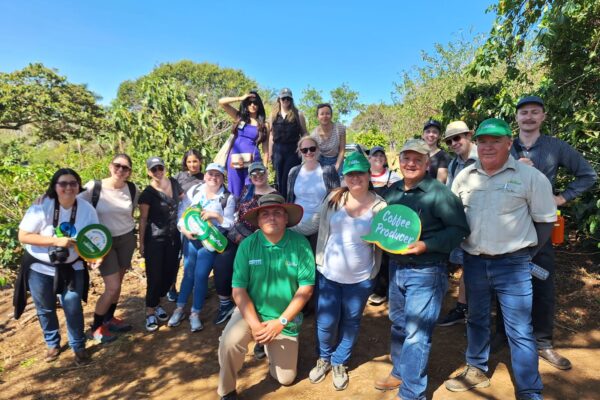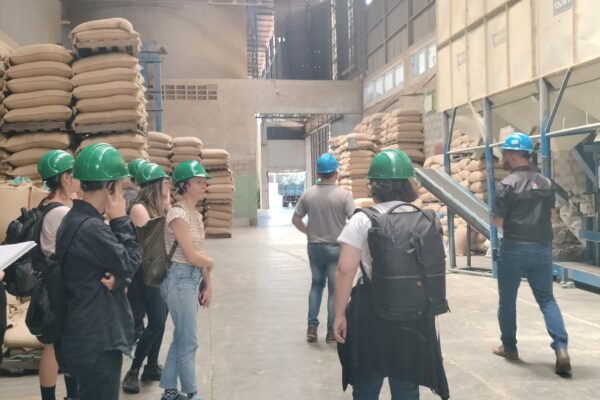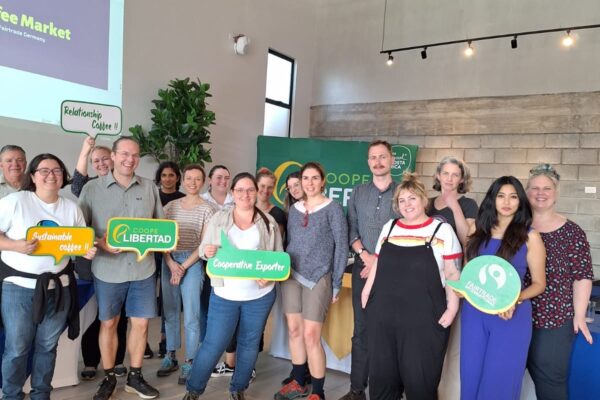Dedicated to empowering producers and promoting sustainable practices, Fairtrade champions in a vision of trade that is fair, transparent, and mutually beneficial. To truly realize this vision, robust communication and marketing strategies needs to be developed to elevate the voices of producers to resonate globally. Recognizing this imperative, the Annual FairComms Meet was organised in Costa Rica by Fairtrade CLAC, Fairtrade America and Canada to strengthen the communications and marketing coordination relationships of the different offices of the Fairtrade system and bring them closer to producer organizations. Attended by Ms. Anu Rai, Senior Manager of Marketing and Communications, this meet aimed to advance global communication projects and align the Fairtrade NAPP Marcomms Strategy with the Global Strategy. This ensure the producers voices are taken into account for forming the Global communication and marketing strategy.

The meeting commenced with meeting among senior marketing communications leaders to underscore the importance of communication at the CEO level and develop Global Marcomms KPI Indicators. Additionally, a group workshop was conducted to clarify the procurement process for global need-based communication projects and to outline the “Back to Basic” communication about Fairtrade’s unique selling points.
The following day commenced with a presentation by Fairtrade Producers from the Caribbean who showcased their sustainable production innovations. This was followed by insights from Fair Trade Towns, exemplified by Grecia. A post-lunch session featured a presentation from Fairtrade Belgium on fostering Fairtrade as a beloved brand. A group workshop centered on the SWOT Analysis of Fairtrade Communications was also held to focus on enhancing visibility and significance at the CEO level. Participants were divided into 3 multidisciplinary groups to address weaknesses, threats, opportunities, and strengths while emphasizing collaborative resource sharing.
The subsequent day, a field visits was organized to the Fairtrade-certified producers’ coffee, sugar, and pineapple fields and processing plants was organized to provide insights into agricultural practices from planting to exportation. Producers shared experiences on climate change and inclusion policies. The NFO Italy (sugar), NFO Germany (coffee), and NFO France (pineapple) shared their insights on market communication strategies. Fairtrade Canada, Denmark, and the USA also shared their insights on emerging markets.
The final session included presentations on collaborative initiatives such as World Fair Trade Day and discussions on future projects for 2025. Plans for collaborative efforts in 2024-2025 were also reflected in the plenary session.
The meeting produced significant immediate outcomes. It led to the development of Global Marcomms KPI Indicators for measuring success and clarified the procurement process for global communication projects. Moreover, it outlined a clear scope for “Back to Basic” communication about Fairtrade’s Unique Selling Proposition (USP) while identifying the solutions to weakness, threats and opportunities for better resource sharing.
Furthermore, it provided and opportunities for Fairtrade producers on showcasing the good agricultural practices and methodologies and their innovations in sustainable production. This collaborative approach maximized communication impact and unity within the Fairtrade system.
Looking ahead, the meeting set the stage for lasting impact within the Fairtrade ecosystem. This includes improved communication strategies and effectiveness promised streamlined operations and clearer messaging. It also increased collaboration and resource sharing to strengthen relationships and enhance the visibility and reputation of Fairtrade as a beloved brand. The meeting also facilitated the implementation of successful projects and initiatives for 2024-2025 and the continued growth of Fairtrade in emerging markets. The Annual Marcomms Meet held in Costa Rica marked a pivotal moment in the journey for 2024-25 towards empowering producers and promoting sustainable practices on a global scale. By enabling fairer trade, Fairtrade remains committed to making a positive impact on the lives of producers and consumers alike.







